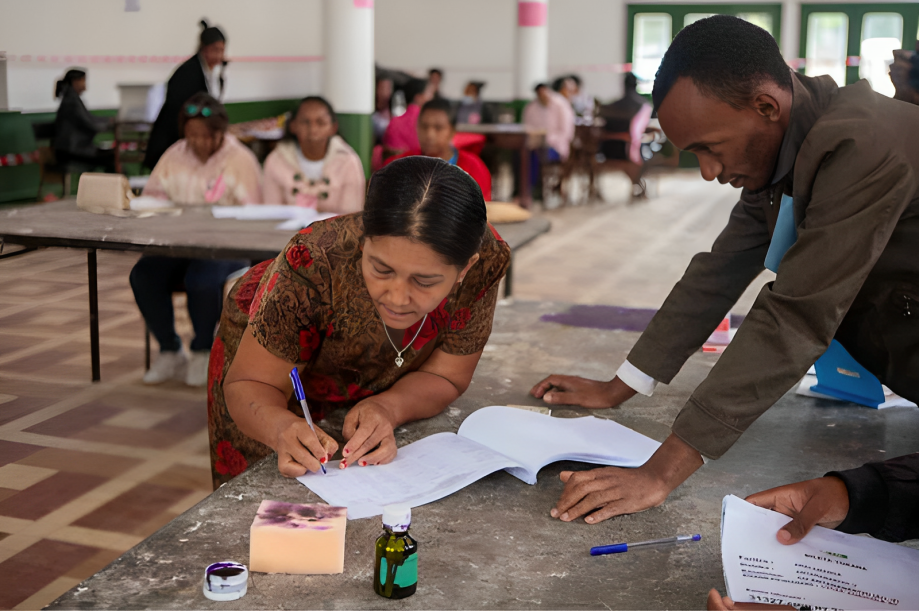Madagascar’s Polarizing Election
In the midst of heightened tensions and extensive protests, Madagascar’s presidential elections‘ first round unfolded with notable strife and a historic low turnout. With a dozen opposition candidates in the fray, ten urged citizens to abstain, citing inadequate conditions for a fair and transparent election. Reports from provisional observers painted a grim picture, highlighting the participation rate, which barely surpassed twenty percent—marking a significant downturn in the country’s voting history.
Contrasting Polling Patterns and Opposition Demands
At polling stations favoring incumbent President Andry Rajoelina, long queues were observed, underscoring the support base. However, starkly contrasting scenes emerged in opposition strongholds, where the absence of voters became conspicuous. The opposition coalition intensified its push for a postponement, emphasizing the necessity for new electoral commissioners and a specialized court to resolve electoral disputes. Despite these demands, President Rajoelina remained resolute, expressing confidence in Madagascar’s democratic process and downplaying the opposition’s calls for a delay.
Keep Reading
Amidst Anticipation and Political Repercussions
President Rajoelina’s optimism about securing re-election appeared unwavering as he cast his vote in Antananarivo, where he lauded the nation’s democratic maturity. Yet, the opposition’s commitment to sustaining protests until a fair and equitable election is secured suggests impending tensions. As the country braces for the final results, expected within a week, the atmosphere remains fraught with discontent and clamors for electoral integrity.
Undoubtedly, Madagascar’s political environment is unstable, with sharp divisions and a general sense of discontent among the populace. The implications of a low voter turnout and the opposition’s steadfastness in demanding a fair election could signal a challenging path ahead for the nation’s leadership, regardless of the final outcome.

